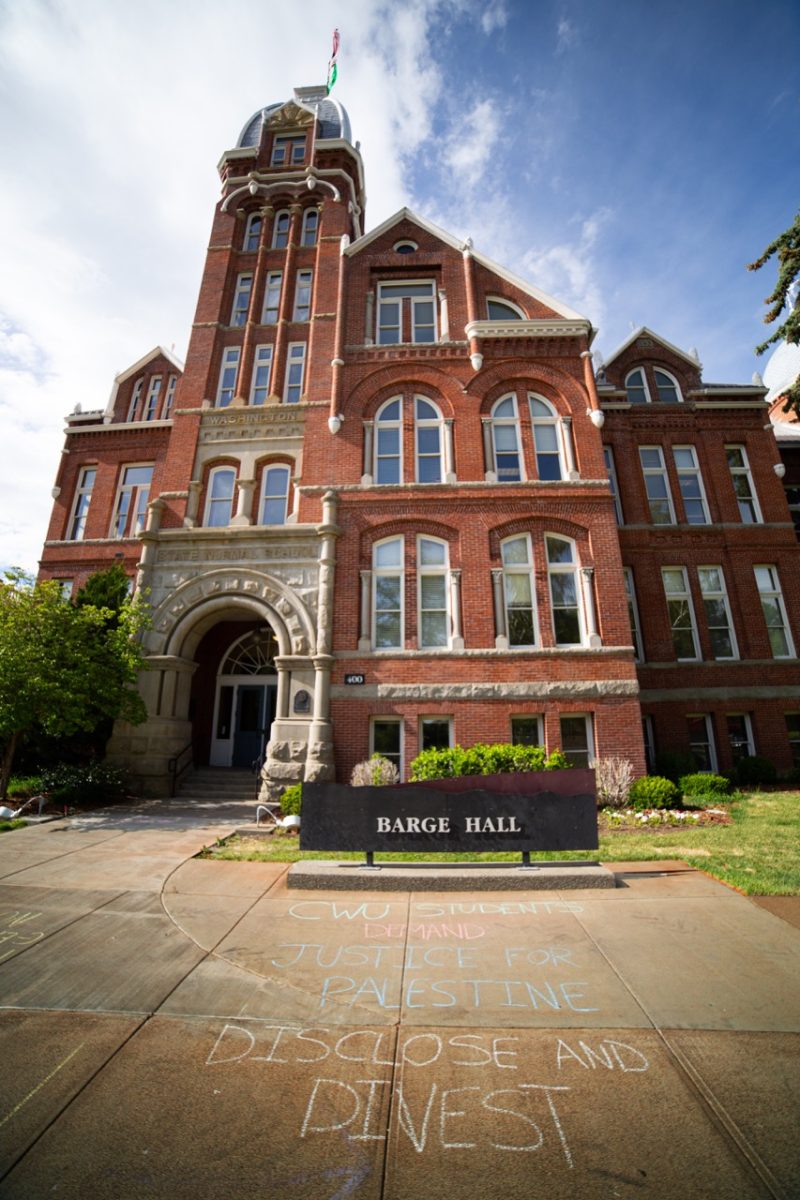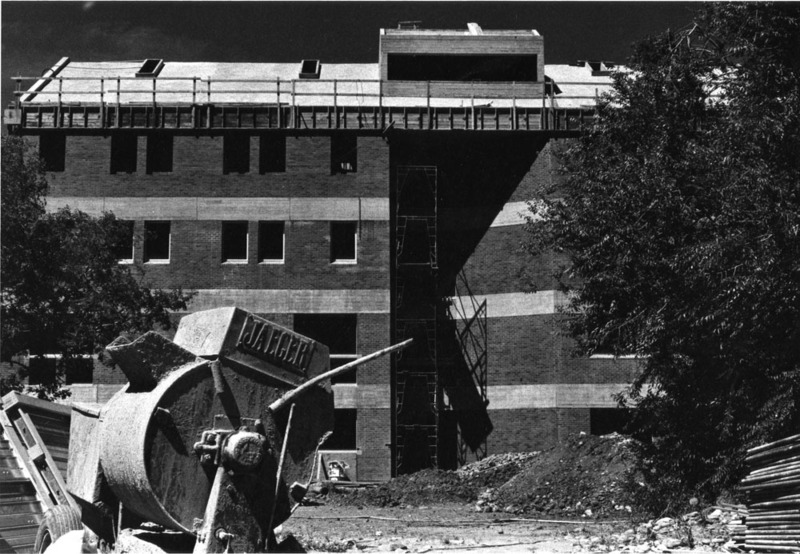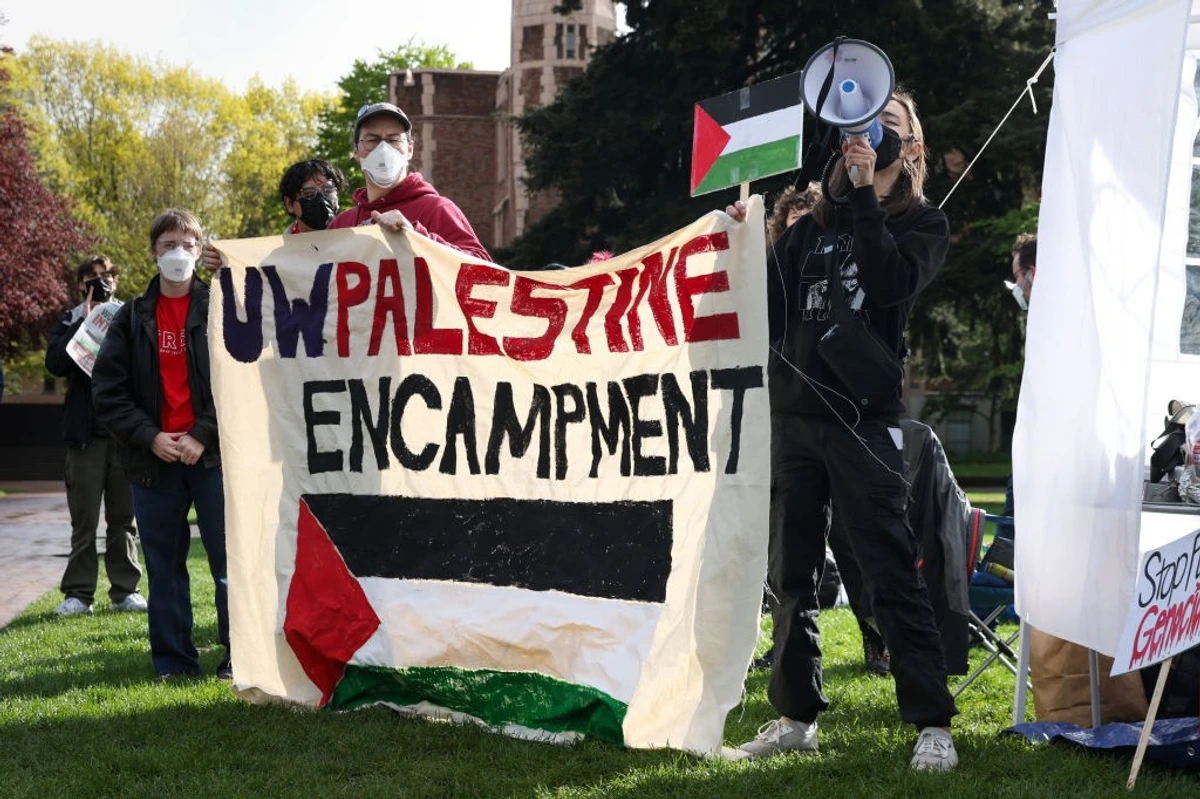Organized and individual protests in relation to the ongoing Israeli-Palestinian conflict have left an impact on campus over the past two weeks, with calls for the disclosure and divestment of CWU’s alleged ties to Israel, direct accusations on the Board of Trustees and administrative members including President Jim Wohlpart and condemnation of the alleged genocide occurring in Palestine.
The United Nations has not labeled the Israeli-Palestinian conflict a genocide, according to the Associated Press, with notably few Western countries providing support to Palestine.
Nevertheless, on May 16, CWU alum and protestor in the community Rivkeh “Landis” Hanson interrupted the Board of Trustees (BOT) meeting. In a video posted to the Instagram account psl_easternwa (the Eastern Washington branch of the Party for Socialism and Liberation), Hanson condemned BOT member Ray Conner for his connections to companies allegedly tied to the ongoing conflict between Israel and Palestine. They also called out the entire BOT and administration.
“Ray Conner, your colleague, is a war profiteer and sold weapons to Israel. Do you feel the blood dripping from your wallet?” Hanson said. “It is absolutely inconceivable that you sit here at peace with this war profiteer. He has no place on our campus, no place in the governing body of our empathetic, progressive and anti-genocide university.”
At the end of their speech, Hanson said that President Wohlpart and the CWU administration are complicit in genocide and called for disclosure and divestment of any ties the university has to the state of Israel. Hanson was also behind the March 7 Chalk and Talk event, where students publicly shared their disapproval of CWU’s Diversity Awards. Hanson was terminated from their position as a financial aid counselor within the Financial Aid department prior to this event, which they believe to be the cause of their firing.
“Board of Trustees policy permits public comment during designated periods of the regular meeting agenda, consistent with the university’s responsibilities under the First Amendment, Washington state law, and university policy,” Andrew Morse, chief of staff and CWU spokesperson, said in regard to the interruption. “The university followed appropriate protocols during the brief demonstration, which occurred outside the public comment period, at the beginning of the May Board of Trustees meeting.”
The Board of Trustees has very specific rules on its website for public comments, including needing to sign up for comment three business days in advance, an allotted time to speak and public comments reserved for a specific time. When Hanson made their speech, it was after the designated public comment time had finished.
Twelve days later, members of the recently created CWU Students for Justice in Palestine organization gathered in front of Barge Hall — home to many of CWU’s administrative offices including Wohlpart’s — on the afternoon of May 28, protesting the university’s alleged ties to Israel and lacking response to student outcry. The small group of roughly a dozen waved Palestinian flags, held homemade signs and braved the wind as they sat and stood in the grass outside Barge’s doors.
Sophomore Natalie Thornton, whose major is undecided, and sophomore political science major Layla Taha, also a reporter at The Observer, headed the protest, emphasizing the importance of mobilization on college campuses in particular. “Any sort of tie to Israel is complicity in genocide,” Taha said.
“And we’re funding that [alleged genocide] with our taxes and with our tuition, even though we have never consented to that,” Thornton added. “We shouldn’t have to be put in a position of having to choose between getting an education and not funding a genocide indirectly.”
Taha further advocates for change at the university level, nationwide. “I think the best way is for students to organize,” she said. “That is really the only way we’ve seen change historically. But it needs to be disruptive measures. It needs to catch the president’s attention. Hence why this is in front of Barge Hall.” When referencing disruption, Taha cited a May 16 email from Wohlpart to university faculty and staff, which stated that “CWU is committed to academic freedom and the protections to speech and expression guaranteed under the First Amendment to the United States Constitution… we must safeguard our employees and students in their ability to study, explore, express, and have civic dialogue on myriad topics in the classroom and across all forms of scholarship, including those that may be controversial or unpopular.”
The email followed recent news regarding anti-zionist movements nationwide on college campuses, including a number of encampments at schools including the University of Washington and Western Washington University. According to Taha, there have been talks among student activists centered around a potential encampment at CWU. “I think next year, we will see a lot more activism for Palestine on campus because of certain things that will be happening,” Taha said. She was unable to comment further on the matter but plans to spearhead future activism along with the CWU Students for Justice in Palestine Organization.
Taha also praised Hanson’s speech at the May 16 BOT meeting, labeling it honorable. “I think that gets their [those in authority positions at CWU] attention for sure.”



